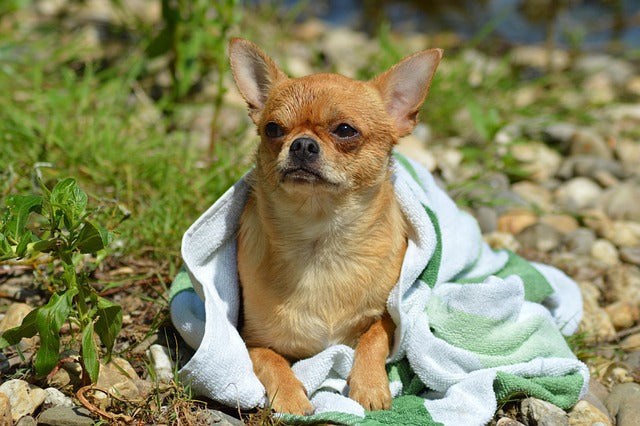The chihuahua is one of the most recognizable dog breeds in the world. With its expressive eyes, compact body, and bold personality, this tiny canine leaves a big impression.
Although small in size, the chihuahua carries a strong spirit, often described as courageous, alert, and affectionate. The breed has been a favorite among dog lovers for decades, not only for its unique appearance but also for its loyal and lively character.
For those exploring pet adoption or looking to learn more about this breed, understanding the chihuahua’s characteristics, temperament, and care requirements is essential.
This comprehensive guide is tailored for dog parents who wish to know more about the breed’s lifespan, physical attributes, and personality traits.
Whether living in a city apartment or a countryside home, the chihuahua adapts well to various living environments when provided with the right care and affection.
In this article, we cover everything needed to make informed choices about this delightful breed, including its historical background, lifespan, ideal size, personality quirks, health considerations, and lifestyle tips.
The Origin of the Chihuahua

The chihuahua is believed to have descended from the ancient Techichi dog, which was kept by the Toltec civilization in Mexico.
Later adopted and refined by the Aztecs, the breed eventually gained attention among Europeans in the 19th century. Its name originates from the Mexican state of Chihuahua, where the breed was first noted in modern history.
Since then, the breed has grown in popularity around the globe, often favored by celebrities and urban dwellers due to its compact size and portability.
Yet beyond the fashionable image lies a breed full of energy, loyalty, and emotional intelligence.
Chihuahua Size and Appearance

Chihuahuas are among the smallest dog breeds, often weighing between 1.5 to 3 kilograms (approximately 3 to 6 pounds).
Their height generally ranges from 6 to 9 inches at the shoulder, although some may be slightly taller or heavier based on genetics and diet.
There are two distinct coat types: short-haired (smooth coat) and long-haired. The short-haired chihuahua has a sleek and glossy coat that lies close to the body, while the long-haired variety features a soft, flowing coat that gives the dog a more elegant appearance.
Head shape also differs among chihuahuas. The "apple head" type has a rounded skull with a shorter muzzle, while the "deer head" variety has a longer muzzle and a more slender frame.
Both are accepted variations, though the apple head is more commonly seen in dog shows and competitions.
Chihuahuas come in a wide range of colors, including cream, black, fawn, chocolate, white, and mixed patterns such as brindle and merle.
This variety in appearance allows dog parents to choose a pup that reflects their personal taste.
Chihuahua Lifespan: How Long Do Chihuahuas Live?

When considering a new addition to the family, one common question that arises is, “how long do chihuahuas live?”
Known for their impressive longevity, chihuahuas are among the longest-living dog breeds. The average chihuahua lifespan ranges from 12 to 20 years, depending on genetic factors, diet, environment, and veterinary care.
Some chihuahuas have even been reported to live into their early twenties. With the right nutrition, regular exercise, and timely vet visits, many can enjoy a long and happy life.
Also Read: Best Small Dog Breeds in India
Factors that influence the lifespan of a chihuahua include:

- Dietary habits: A balanced, high-quality diet is essential for promoting good health.
- Dental care: Small breeds like chihuahuas are prone to dental issues, which can lead to infections and impact overall health.
- Exercise: While not requiring intense workouts, chihuahuas benefit from daily play and walks to stay fit.
- Preventive health checkups: Regular veterinary care helps in early detection of conditions that could affect their quality of life.
Personality and Temperament

Despite their petite size, chihuahuas are known for having a bold and assertive personality. They are often described as spirited, loyal, and intelligent.
Their confidence and curiosity make them active participants in household life. Many display a protective nature and quickly become attached to their human families.
Some of the standout personality traits of a chihuahua include:
- Loyalty: Chihuahuas are incredibly devoted to their primary caregivers and often develop deep emotional bonds.
- Alertness: They serve as excellent watchdogs due to their sharp senses and strong territorial instincts.
- Affection: While selective with strangers, they show a great deal of affection to those they trust.
- Playfulness: Their energetic and playful nature keeps them active and mentally engaged.
Although friendly when socialized properly, chihuahuas can sometimes exhibit possessive or jealous behavior, especially when not trained early.
It is advisable to introduce them to other pets and people from a young age to encourage positive interactions.
Training and Socialization
Training a chihuahua requires patience and consistency. Their intelligence makes them quick learners, but their strong-willed nature may result in moments of stubbornness. Positive reinforcement methods work best, including treats, praise, and toys.
Key areas to focus on during training include:
- Housebreaking: Due to their small bladder size, regular potty breaks and consistency are crucial.
- Barking control: Chihuahuas can be vocal, especially when excited or threatened. Teaching quiet commands can be helpful.
- Socialization: Early exposure to different sounds, environments, and individuals helps prevent anxiety and aggressive tendencies.
With proper guidance, chihuahuas can be well-behaved, adaptable, and obedient companions.
Health Considerations
While chihuahuas generally enjoy long lives, they are prone to certain health issues due to their size and genetics.
Understanding these risks helps in taking preventive steps and seeking timely medical care.
Common Health Concerns:
- Dental Disease: Their small jaws and crowded teeth can lead to plaque buildup, gingivitis, and tooth loss.
- Patellar Luxation: This condition involves the dislocation of the kneecap and is common in small breeds.
- Heart Disease: Heart murmurs and other congenital heart issues may develop with age.
- Hypoglycemia: Young chihuahuas, especially puppies, may experience low blood sugar, which can be life-threatening if untreated.
- Collapsed Trachea: A weakened windpipe may cause chronic coughing and breathing issues.
- Eye Problems: Dry eye, glaucoma, and cataracts are occasionally seen in older chihuahuas.
Annual health checkups, a nutritious diet, and regular dental cleaning can significantly reduce the risk of these conditions.
Grooming and Maintenance
Grooming requirements vary depending on the chihuahua’s coat type.
- Short-haired chihuahuas require weekly brushing to remove loose hair and maintain a clean coat.
- Long-haired chihuahuas need more frequent grooming, including brushing three to four times a week to prevent matting and tangles.
Regular ear cleaning, nail trimming, and teeth brushing are recommended for both coat types. Despite their small size, chihuahuas appreciate routine grooming and often enjoy the bonding time it brings.
Bathing should be done every three to four weeks or as needed, depending on the dog's lifestyle and activity level.
Diet and Nutrition
Chihuahuas have a high metabolism and require a well-balanced, calorie-conscious diet. Small-breed dog food is typically formulated to meet their nutritional needs.
Key dietary tips include:
- Protein-rich meals to support muscle maintenance.
- Omega fatty acids to promote skin and coat health.
- Controlled portions to prevent obesity, which can strain joints and internal organs.
- Fresh water access throughout the day to prevent dehydration.
Treats should be limited and healthy, as chihuahuas can quickly gain weight due to their small stature.
Compatibility with Families and Other Pets
Chihuahuas thrive in households where they receive consistent attention and care. They may not be ideal for families with very young children unless supervised, as their small size makes them delicate and prone to injury from rough handling.
When raised with other pets, especially from a young age, chihuahuas can get along well. However, their bold attitude may sometimes clash with larger or more dominant animals. Proper introductions and early socialization are essential for a harmonious household.
Conclusion
The chihuahua may be small in size, but it offers a heart full of affection, loyalty, and spirit.
From its rich history to its long lifespan and entertaining personality, the breed continues to captivate dog lovers around the world.
When asked, “how long do chihuahuas live,” many are surprised to learn that these tiny canines often outlive much larger breeds, sometimes reaching well into their late teens or early twenties.
Understanding the breed’s grooming needs, personality traits, health considerations, and care requirements can help dog parents provide the best life possible for their chihuahua.
With proper love, nutrition, and attention, this charming dog becomes not just a companion but a cherished member of the family.




